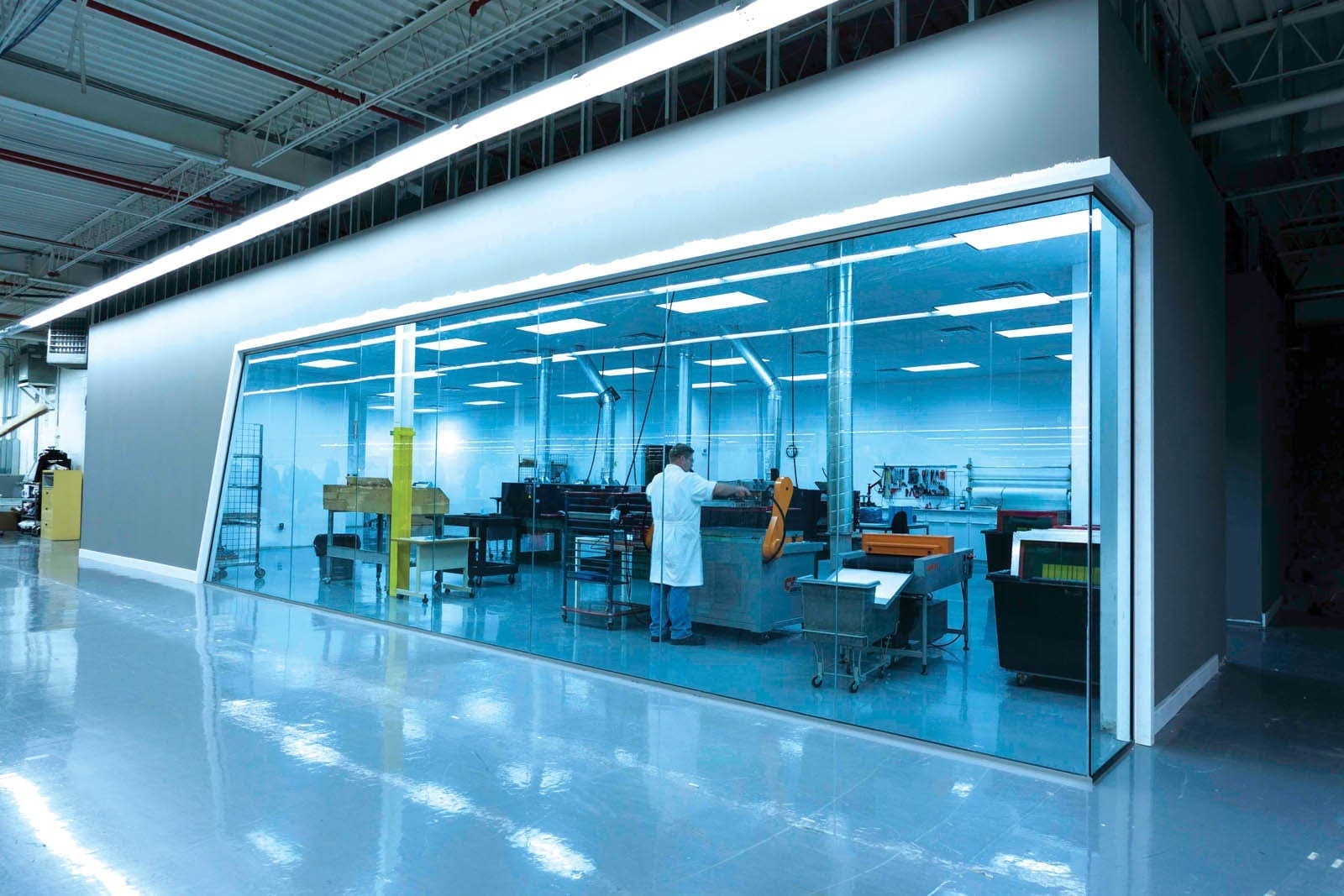Help build textiles of the future at Myant
By Nick Zarzycki | March 04, 2019

Our Top Startup Jobs series profiles MaRS ventures that are on the hunt for talent. This week we look at Myant, a Toronto-based company that is building the textile industry of the future.
Imagine if your clothes could detect an abnormal heartbeat, warm you up when you’re stuck in a blizzard, or even predict when you might get sick.
You won’t have to imagine much longer, if Toronto-based Myant Inc. has anything to say about it.
Since it was founded in 2010 by CEO Tony Chahine, the 80-employee startup has made significant strides in the nascent field of textile computing, producing garments that can track your vital signs, light up in the dark, share data with other devices, and even provide therapeutic relief. Earlier this year at CES, it unveiled the world’s first machine-washable shirt that can monitor blood pressure, heart health and physical movement.

Today, Myant is gearing up to fill dozens of technical roles on its path to be the world’s go-to provider of textile computing products. Here’s what you should know before you apply.
From fashion designers to firmware engineers
Ask anyone at Myant what the most interesting part of their job is, and the first thing they’ll tell you about is the people—that is, the huge range of people the company needs to function day-to-day.
“The process of creating a textile computing platform—putting technology into the very fibres of something you wear, something you sleep on—that’s a brand new industrial category,” says VP strategy & partnerships Dan Herman.
“To make that work, you need people who work in fashion and design, right through to hardware and mechanical engineers. From machine technicians and technical knitting staff through to artificial intelligence experts, data scientists, chemical software engineers, to firmware engineers. You name it.”
For director of industrial design & UX Michelle Zheng, that diversity in work and teams means constant opportunities to grow and take her career in new directions.
“The fact that it’s so multidisciplinary, that you can learn so much from other people, means you can do lots of different things,” says Zheng.
“Since we work on the product from beginning to end, you can fit yourself in wherever your interest is. If you’re more into final polishing and branding, you can do that here. If you’re more into conceptual ideation, you can also do that here.”
A team of problem-solvers, not experts
As specialized as each role at Myant might be, director of research and development Milad Alizadeh-Meghrazi says the common thread among Myant employees is their ability to apply expertise without getting bogged down in the details.
“The pace at which things are done in academia and research is quite different than how we do them in industry. If you want to be too much of an academic and think too meticulously about something, that won’t work.”
For prospective employees from research, academia and industry backgrounds, Alizadeh-Meghrazi says motivation, hunger and a proactive attitude will trump knowledge every time.
“It’s not a matter of whether you’re an expert in a certain field or whether you know more than anyone else. It’s more a matter of how engaged you’re going to be, how involved you’re going to be and how many stones you are going to leave unturned in your exploration.”
“The ideal person is somebody who is adaptable to change,” adds Zheng. “Our industry changes so quickly, being resilient to change is important.”

The human element in an automated environment
Last year, Myant announced it was partnering with STOLL to build the Digital Textile Factory, the first facility in North America capable of producing textile computing products using fully-automated 3D knitting machines.
As smart as the machines on the factory floor might be, however, director of knitting operations Eric Robert says the human element in advanced manufacturing is paramount. “I think people with the right skillset are very, very important in this industry,” says Robert.
“The machines are static, they do what you tell them to do. But having people that are creative and looking at different or ingenious ways of creating that end-use application is the biggest part of what we’re doing here.”

A chance to make history
“I have never met a company that has this much potential to be a game-changer in terms of the market opportunity we’re facing,” says Herman. “Not just in terms of the market opportunity, but also the ability to impact people’s lives.”
Zheng agrees that the most rewarding part of her job is being on the front lines of the cutting-edge technology. “It’s never a boring day. Every day is a new challenge and we’re truly pioneering a new field.”
Ready to apply?
Get the latest startup jobs delivered to your inbox with the MaRS Startup Careers newsletter.
 Nick Zarzycki
Nick Zarzycki